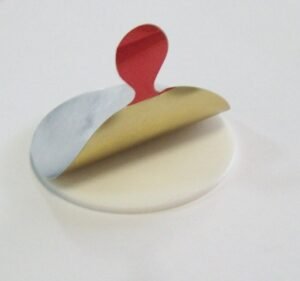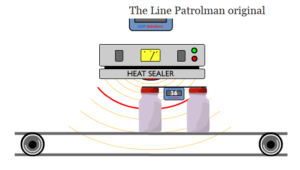Foil Induction Seals in Caps
Cap liners are safeguards that keep your product fresher for longer by keeping moisture and oxygen fluctuations at bay. The freshness seals are typically found adhered onto the container mouth through induction sealing or within the cap itself such as in cases of foam liner seals. In some instances, cap liners may come in both configurations within the same container.
There are a myriad of cap liners to choose from, all with different applications depending on multiple factors. In order to choose the perfect type for your needs, it is imperative to know the different types of cap liners and what they are composed of.
Cap liners are made of laminates of material which pass through the process of induction sealing in order to adhere them to the mouths of the containers. In terms of applications of these foilseals, they may be classified as one- or two-piece liners.
One-piece liners are adhered to the container mouth and are removed on the initial opening of the product. These foil seals for bottles are ideal for one-time use and are often discarded after the first opening. This means that it does not come with a guarantee of resealing the product’s freshness once the packaging has been opened. These types of liners are usually used for dried goods and powders as well as types of products expected to be consumed immediately after opening.
Two-piece liners, on the other hand, can reseal the product because they are not discarded immediately after use. Once the packaging is opened, these foil induction seals retain their use. They are typically used for products which need to be opened repeatedly over a prolonged period of time. This type of capliners can be used for liquids and oils and serve as a better barrier against the elements from the outside, as well as providing the container leak-proofing.
Foam Liners in Packaging
 Foam liners can come in either the one- or two-piece type. In general, foam liners stay within the cap in order to adequately seal in the product. They are used in a variety of fields such as for the food and beverage industry, pharmaceuticals, industrial chemicals and even cosmetics.
Foam liners can come in either the one- or two-piece type. In general, foam liners stay within the cap in order to adequately seal in the product. They are used in a variety of fields such as for the food and beverage industry, pharmaceuticals, industrial chemicals and even cosmetics.
Foam liners are a more economical option compared to other types of liners and do offer up their own set of advantages. The foam is able to withstand chemical abrasion such as when exposed to acids and alkalis or even some solvents. Foam liners are also a good material for a variety of liquids such as oils and seasonings—liquids which usually stump other types of foilseal liners when trying to maintain their integrity for prolonged periods of time.
These freshness seals are also compatible with a wide range of products and may be perfect for your product as well.
Foil Seals For Bottles in The Induction Sealing Process
 For liners to adhere sufficiently onto the container mouth, the induction sealing process is employed, utilizing specialized equipment able to meet the demands of large-scale production. Caps come in with the foam liner. Along with the already-filled product container, they make their way down the conveyor line until they reach the induction sealing head. This head emits an electromagnetic field which permeates through the cap. This field generates enough of an electric current in order to melt the film within the liner and adhere it onto the mouth of the container.
For liners to adhere sufficiently onto the container mouth, the induction sealing process is employed, utilizing specialized equipment able to meet the demands of large-scale production. Caps come in with the foam liner. Along with the already-filled product container, they make their way down the conveyor line until they reach the induction sealing head. This head emits an electromagnetic field which permeates through the cap. This field generates enough of an electric current in order to melt the film within the liner and adhere it onto the mouth of the container.
Once the consumer opens the container, they can remove the seal and place it inside of the cap so the foam liner can do its job of keeping in the freshness and preventing leakage of the product.
Benefel Pty Ltd. and Adeneli Packaging
Our teams at Benefel Pty Ltd. and Adeneli Packaging can help you with your foam liner needs. Our experts are on standby to take your calls and chats. Whatever product you may have, we have the perfect liner material for you. Product consultation is free and we are happy to develop partnerships with our customers by supplying consumable products that work well with packaging machinery.



Follow Us